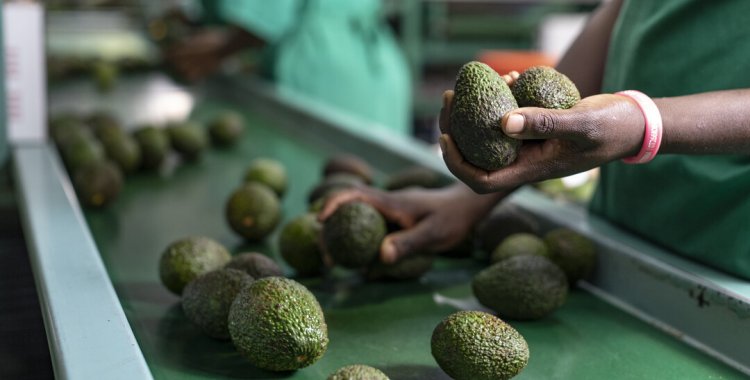A delegation of senior officials from the Dutch Embassy was in the Port of Lobito this Monday to see its potential and promote partnerships within the scope of the Lobito Corridor.
According to Paul Erderer, deputy ambassador of the Netherlands in Angola, the product will travel from the Port of Lobito to the Port of Rotterdam, an essential infrastructure for the entry of food exports into Europe.
The executive recognized the importance of the Port of Lobito in the Africa-Europe connection, as well as its strategic position for international trade. He stated that the agricultural sector is what arouses the most interest in the Netherlands when it comes to cooperation with Angola.
“To export avocados, it is very important to have a good, fast, well-functioning and efficient cold chain. We are producing avocados in Huambo that will pass through Lobito and reach the rest of the world, but the logistics chain is essential and these things also require investment,” he said, noting that there is private investment in Europe that can help local entrepreneurs in this regard.
“The possibilities for agriculture and agro-industry are enormous, all that is needed is investment, and this port is the catalyst. This is the reason for our interest in being linked to the Caála platform,” said the deputy ambassador, quoted by Angop.
Remembering that the first regional avocado cluster was launched last year in Haumbo, specifically in the Caála area.
Katila Neto, administrator for the commercial area of the Port of Lobito, made it known that the company is ready and capable of responding to any challenge regarding the flow of products through the Port of Lobito.
“We have a multipurpose terminal that has an installed capacity that is not yet 50 percent used, which means that we do have capacity,” he said, stating that the delegation was able to see the terminals and their condition, as well as the equipment that exists.
“We have modern equipment in our terminals. We even have a second-line terminal that can assist the first-line terminals. Here they were able to see the potential of the Port of Lobito to support their project,” he added.
The official said that last year the port received 372 ships, and the terminal is handling an average of 25,000 TEU (Twenty-Foot Equivalent Unit: a standard measurement used to calculate the cargo volume of a maritime container) per year - when it has capacity for 250,000 TEU.
At the end of the meeting, the delegation took a guided tour of the multipurpose terminal (general and containerized cargo), operated by the Africa Global Logistic (AGL) consortium, and the mineral terminal, under the responsibility of Lobito Atlantic Railway (LAR).
The delegation also included representatives from the Netherlands Development Bank, Leon Tajaard, from the Ministry of Foreign Affairs and International Cooperation of that country, Omar Hang, as well as the economic advisor, Armindo Teuns.







